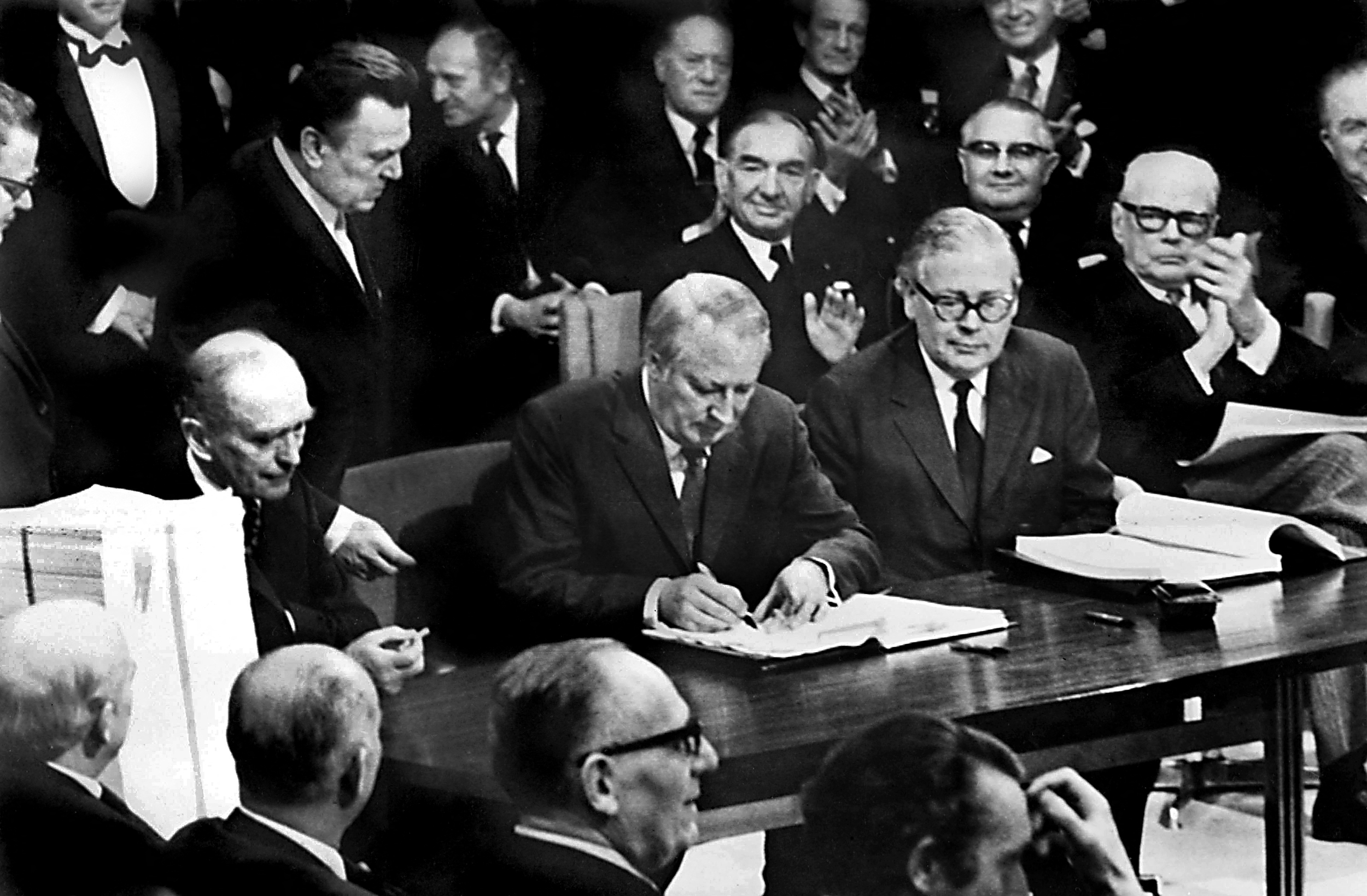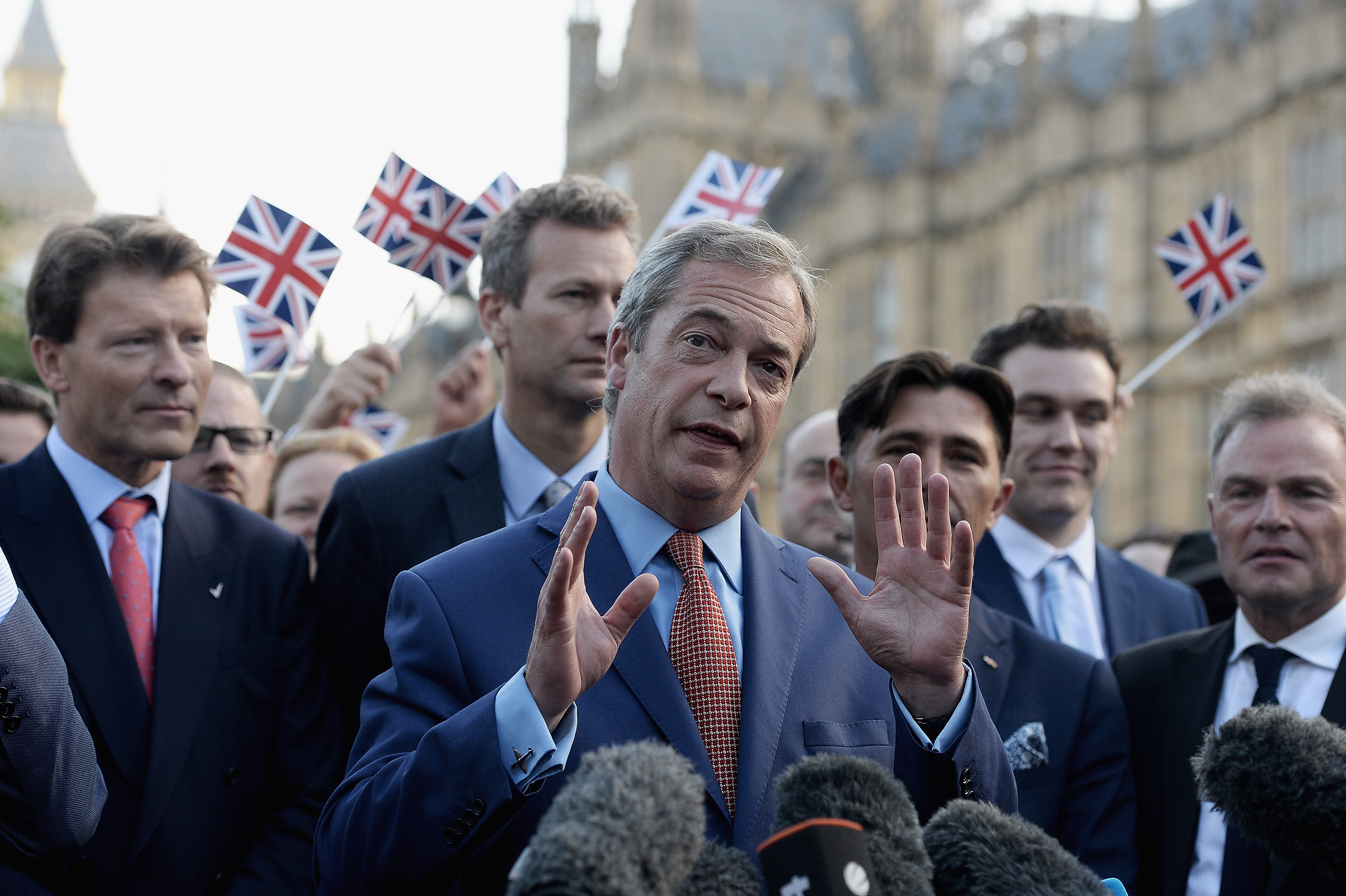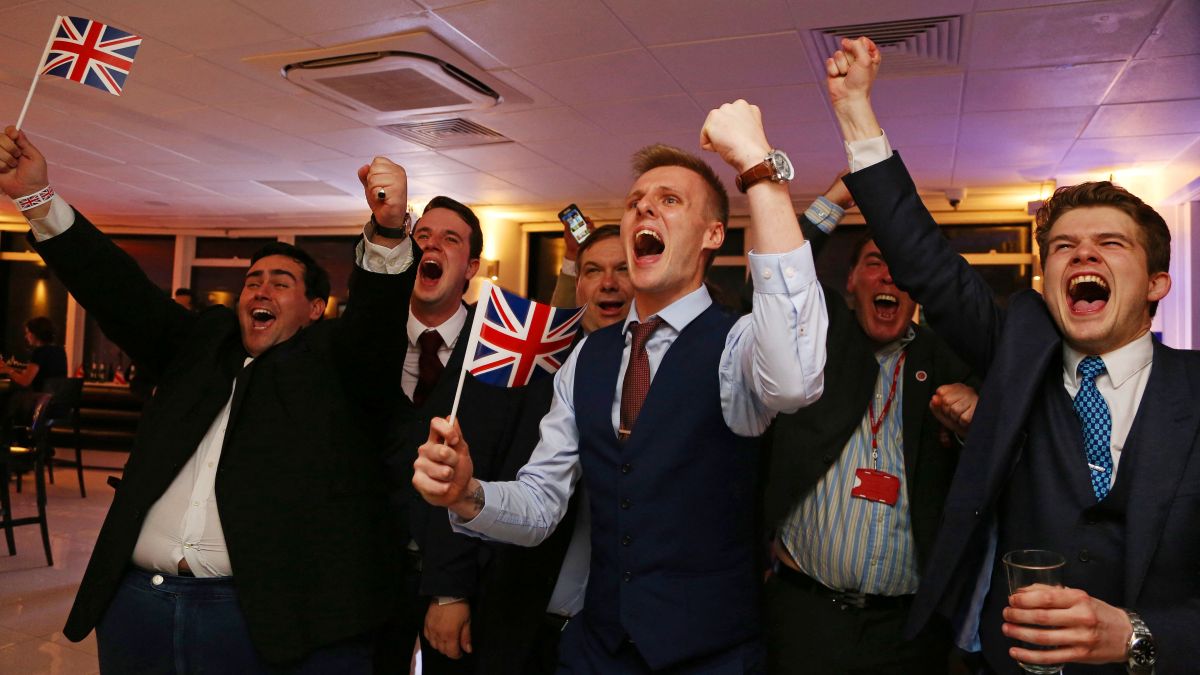Next year will mark a decade since Britain voted to leave the European Union. In the years that have followed, despite all the chaos and “Bregret”, a quiet consensus seems to have settled. Even with polls showing comfortable majorities in favour of British re-entry, no major party of government is actively campaigning for the country to rejoin the EU. Even the Liberal Democrats feel inclined to stress that returning is only a “longer-term objective”. Divorce, it seems, has been accepted, even if in sorrow rather than anger. And so, it seems, has Labour’s unassuming “reset” to tie the country more closely into the EU’s regulatory orbit. A new settlement has been reached.
And yet, that is not how history works. In my new book, Between the Waves: The Hidden History of a Very British Revolution, I tell the story of Britain’s long, tortuous relationship with the new federal “Europe” that emerged from its largely unexplored beginnings during the Second World War, to the referendum of 2016 and Britain’s formal departure on January 31, 2020. Throughout that time, proponents of both sides of the argument — whether “in” or “out”, “yes” or “no”, “Remain or “Leave” — have yearned for new “settlements”, reaching for that most alluring of rhetorical devices: inevitability. The future is obvious, it is declared with certainty; it is knowable, rational, set.

Ted Heath signs the act of succession to the European Economic Community in Belgium in January 1972
AFP
On the Eurosceptic side of the ledger, the idea has usually been that Britain’s exceptionalism meant it would never be able to accept membership of a supranational body such as the one that emerged on the continent after the Second World War. As Anthony Eden memorably put it, to do so would violate the “unalterable marrow” of the British nation. And yet, we did accept it — for 40 years at least. Harold Wilson similarly cautioned that Britain would never weaken its ties with the Commonwealth for a “marginal advantage in selling washing machines in Dusseldorf”. And yet, we did. Hugh Gaitskell even went as far as to argue that joining Europe would mean “the end of Britain as an independent European state … the end of a thousand years of history”. And yet, and yet.

Sir Anthony Eden memorably warned that joining a supranational body would violate the ‘unalterable marrow’ of the British nation
CHRIS WARE/KEYSTONE FEATURES/GETTY IMAGES

British Labour Prime Minister Harold Wilson cautioned that Britain would never weaken its ties with the Commonwealth for a ‘marginal advantage in selling washing machines in Dusseldorf’
EVENING STANDARD/GETTY IMAGES
On the whole, however, those most attracted to the idea of inevitability have tended to come from the pro-European side of the argument, drawn less to notions of immutable national character and more to what they see as the immutable logic of history. In this account of Britain’s relationship with Europe, Britain’s destiny has always been — and will always be — to reconcile the “past she could not forget with the future she could not avoid”. These were the words of the late Guardian journalist Hugo Young in his masterful account of Britain’s relationship with Europe, This Blessed Plot.
Young’s account was first published in 1998, when so many seemed to believe they could see an end to history. That Europe was the future was not an opinion, Young argued, but an “incontestable fact … proved by the outcome, Britain’s presence inside the European apparatus”. Back in the late Nineties, Young’s circular argument was more persuasive than today, as we observe Britain’s absence from the European project. Euroscepticism then appeared lost, eccentric, powerless. Moving towards a looser relationship with Europe — let alone withdrawing — meant swimming against the tide of history. The fact that Tony Blair was then struggling to lead Britain into the single currency was seen as a difficult hurdle, but ultimately part of the same long struggle that would eventually result in the same old fate: eventual, reluctant entry.
It was true, of course, that Britain really did have a history of resisting integration, only to eventually accept its apparent fate. But even in 1998 Young’s account was far from “proved by the outcome”. At this time, and from then on, Britain was already living in an uncomfortable, semi-detached position within the wider European project, inside the single market and customs union, but not yet signed up to the single currency due to come into force the following year. This itself sat uncomfortably with notions of inevitable progress.

Margaret Thatcher expressed fears to John Major, then the chancellor, about the negative effects of a single currency
ALAMY
As chancellor, John Major had insisted that joining the precursor to the euro — the ERM — was like ageing, as he advised a sceptical Margaret Thatcher. “You don’t like it, but you can’t avoid it,” he warned. Reluctantly, Thatcher eventually accepted his advice, although she continued her battle against the single currency itself. As prime minister, Major then negotiated the Maastricht treaty, in which Britain secured an “opt-in” to the single currency, by which it would not have to enter at the beginning but could do so whenever the time was right. The old historical process would play out again, many assumed.
But within two years of joining the ERM, Britain crashed out. Black Wednesday — September 16, 1992 — was not just a personal humiliation for the prime minister, but a defining moment in Britain’s relationship with Europe. For Major it was the point at which the Conservative Party turned from being merely uneasy with European integration to rejecting any further entanglement, allowing its “emotional rivers [to] burst their banks”. Brexit, in this telling, is the conclusion of this flood.
However, contrary to Major’s analysis, Black Wednesday was not simply a crisis to which people reacted in an overly emotional way; it was one that fundamentally undermined his own grand strategy. Major had consistently argued that British membership of the ERM was as much a diplomatic manoeuvre to protect British influence in Europe as an economic mechanism to control inflation. Britain had joined to remain “at the heart of Europe”, which, after all, was its historic destiny. But once Britain was out of the ERM, what was left of this policy?
For a while after Black Wednesday, even ratification of Maastricht looked in doubt as the Eurosceptic rebels saw their chance, egged on by Thatcher, who demanded “as complete a reversal of policy on Maastricht as has been done on the ERM”. If Europe’s economies could not cope in a single exchange rate, she asked, how could they cope in a single currency? “There would be chaos of the sort which would make the difficulties of recent days pale by comparison.” Huge fiscal transfers would be required. Unemployment would rise and mass migration would follow. “The political consequences can already be glimpsed,” she warned. “The growth of extremist parties, battening on fears about mass immigration and unemployment.”
Events energised Euroscepticism
That speech was far more radical — and prophetic — in tone than the one she delivered in Bruges four years earlier, which came to define her (often mistakenly). Whether Thatcher has been proved or disproved by events, it remains the case that it was far more than mere emotion energising the Eurosceptic cause, as Major insisted. It was events.
The combination of Black Wednesday with Denmark’s earlier rejection of Maastricht in a referendum that summer had turbocharged the Eurosceptic cause in Britain. Yet Major persisted. By April 1993, with Maastricht almost certain to be ratified, he delivered a speech to the Conservative Group for Europe, dismissing the sceptics as imperial nostalgists motivated by “frustration that we are no longer a world power”. To Major, such fantasies were absurd. “Fifty years from now, Britain will still be the country of long shadows on county grounds, warm beer, invincible green suburbs, dog lovers and — as George Orwell said — old maids bicycling to Holy Communion through the morning mist.”
Even today, it is a curious speech, mocking the politics of nostalgia with a misplaced nostalgia of its own. In Homage to Catalonia, written in 1938, Orwell had raised his fears that exactly such bucolic comfort was lulling the country into a false sense of security. Surrounded by such gentleness, Orwell thought, “it is difficult … to believe that anything is really happening anywhere”. While the world convulses, the shires remain in “the deep, deep sleep of England, from which I sometimes fear that we shall never wake”. Major had misread Orwell and indeed was committing the sin he identified by playing down changes around him and focusing on the superficial stability at home.
In the most British of ways — strikingly reminiscent of today — by the end of Major’s time in power the country had found itself in a new position no one had designed or much wanted: neither at the heart of Europe nor separate from it. This was the context heading into the 1997 general election. A new settlement had been reached, which voters seemed uneasy about unpicking. Despite huge poll leads, Blair was in “a perpetual motion of reassurance”, as he later put it. It was in this mood that, in November 1996, he matched a Tory pledge not to join the euro without a national referendum.

Blair matched a Tory pledge not to join the euro without a national referendum, unwittingly paving the way to anti-EU populism
MAL LANGSDON/REUTERS
And with that, Blair made one of the most consequential decisions of his career before he had even become prime minister, joining Major in erecting a barrier he would never be able to surmount. Blair felt it was an important part of his “modernising agenda” — not, as many would later see it, anathema to it. Reassuring Middle England was modernisation. As Blair later put it, “Though my general posture was pro-European, I took care not to go beyond what was reasonable for British opinion”.
Once in power, Blair largely stuck to this mantra. At his first Labour Party conference as prime minister, he told the audience that, while he believed Britain was destined to lead the continent into its future — “to be nothing less than the model 21st-century nation, a beacon to the world” — the economic conditions had to be right before it would join the single currency. Britain, then, was both the dashing new face of modern Europe, fated by history to lead it into a bright new future, and the same old cautious partner it had always been. Today, of course, it is darkly comic to imagine Britain fulfilling some “destiny” to lead Europe. It has returned to its old conservative caution under Sir Keir Starmer, offering cautious engagement without provoking public opinion.

Nigel Farage addresses the media on June 24, 2016, when the Brexit referendum result was declared
MARY TURNER/GETTY IMAGES
If there is any sense of dramatic inevitability hanging over the long story of Britain’s struggle with Europe, then, it is of a darker, more tragic variety than the one Young and others assumed would play out. In 1990, when moving against his leader, Geoffrey Howe saw in Thatcher a rogue figurehead who could become an icon of Eurosceptic resistance if she was not stopped. And yet, by helping to remove her from power, he only served to turn her into exactly what he feared. It was not Thatcher who created the conditions for Britain’s eventual withdrawal, after all, but those who ignored her warnings about the risks they were taking with their policies. Britain did not radicalise itself in a vacuum. Had international markets, the single currency and freedom-of-movement immigration been more conservatively managed, the conditions for Britain’s eventual Brexit rebellion would not have existed.
Why did only Britain leave?
Still, the waves that crashed over Britain from 2007 to 2016 crashed over much of the continent too. So, the nagging question remains: why did Britain alone choose to leave the EU? Beyond arguments about the euro and the Social Chapter lies a more elemental truth. Membership of the EU and its institutions demands a political commitment to the European Union. “Europe” is a project animated by a principle, as Clement Attlee told MPs in 1950: “A principle of the supranational authority”. As Attlee was clear, the question was therefore always: should Britain accept the principle? For some reason, Britain never quite could — and it remains to be seen whether it has changed enough to do so in the future.
For Roger Scruton, one of the leading conservative opponents of European integration, the reason it could not accept that principle lay in the unique circumstances of Britain’s history. Its island home, its language and common law, its Crown and its parliament, each a layer of sediment creating a nation that could not feel at home in the Europe of Jean Monnet. As Hugo Young put it, Britain’s relationship with Europe is, in the end, a story about “an attitude to history itself”. On the one hand, there is the Young view of history, the progressive account: a country struggling against its past to reach its future. The alternative story is the conservative one: “The proud people, who defended their ‘sceptred isle’ for a millennium,” as Scruton put it. As Scruton himself acknowledged, both stories contain essential truths and, just as importantly, “both look backwards, in order to offer a story of how we have become what we are”.

Migration continues to influence Britain’s relationship with the Continent, years after it became the driving force in the Brexit referendum
DAN KITWOOD/GETTY IMAGES
The story of Britain’s relationship with Europe is not a story of geography, but of history; a process that is neither ordained nor ordered, but rather chaotic and contingent, shaped by character and chance and circumstance. The story never settles, for it cannot. New dilemmas emerge, new crises unfold, new individuals demand new answers. Today, the battle has morphed from membership of the EU to membership of the European Convention on Human Rights, and with it the Good Friday agreement and Starmer’s entire “reset” with Brussels. In time, it will be about something else, as Europe itself continues to morph and change.
The story of Britain and Europe, then, is not one of destiny, in or out. It is one of timeless moments washing over the country. The tide will roll on, the same dilemmas repeating themselves, each new and yet each familiar; Britain standing between the waves of a past it half remembers and a future it cannot know.
Tom McTague is editor in chief of The New Statesman. Between the Waves: The Hidden History of a Very British Revolution 1945-2016 is published by Picador, £25
